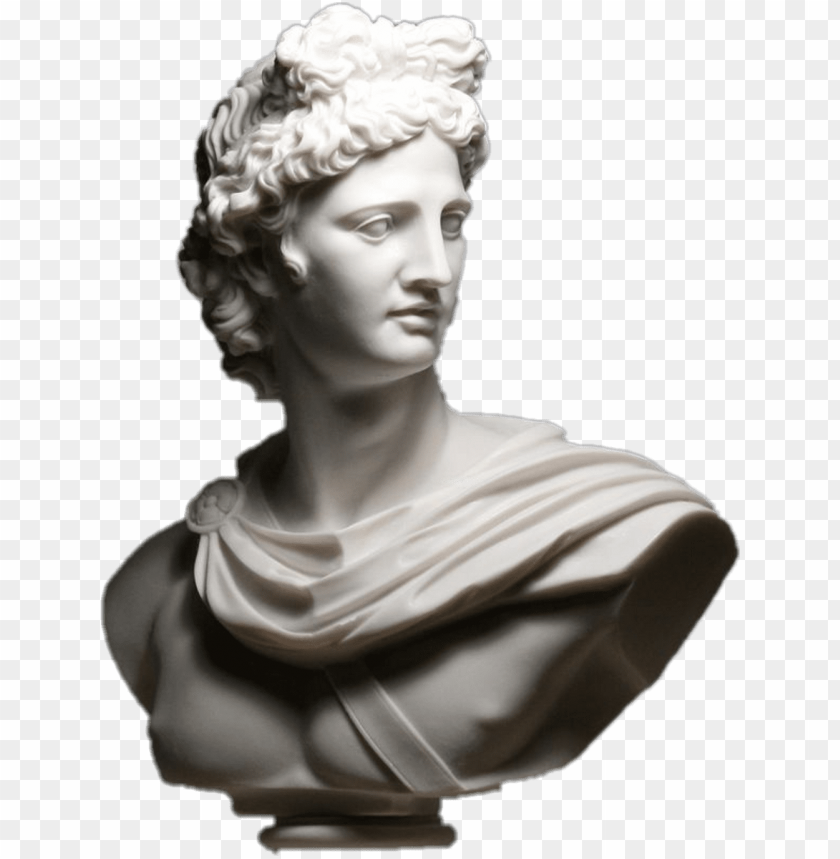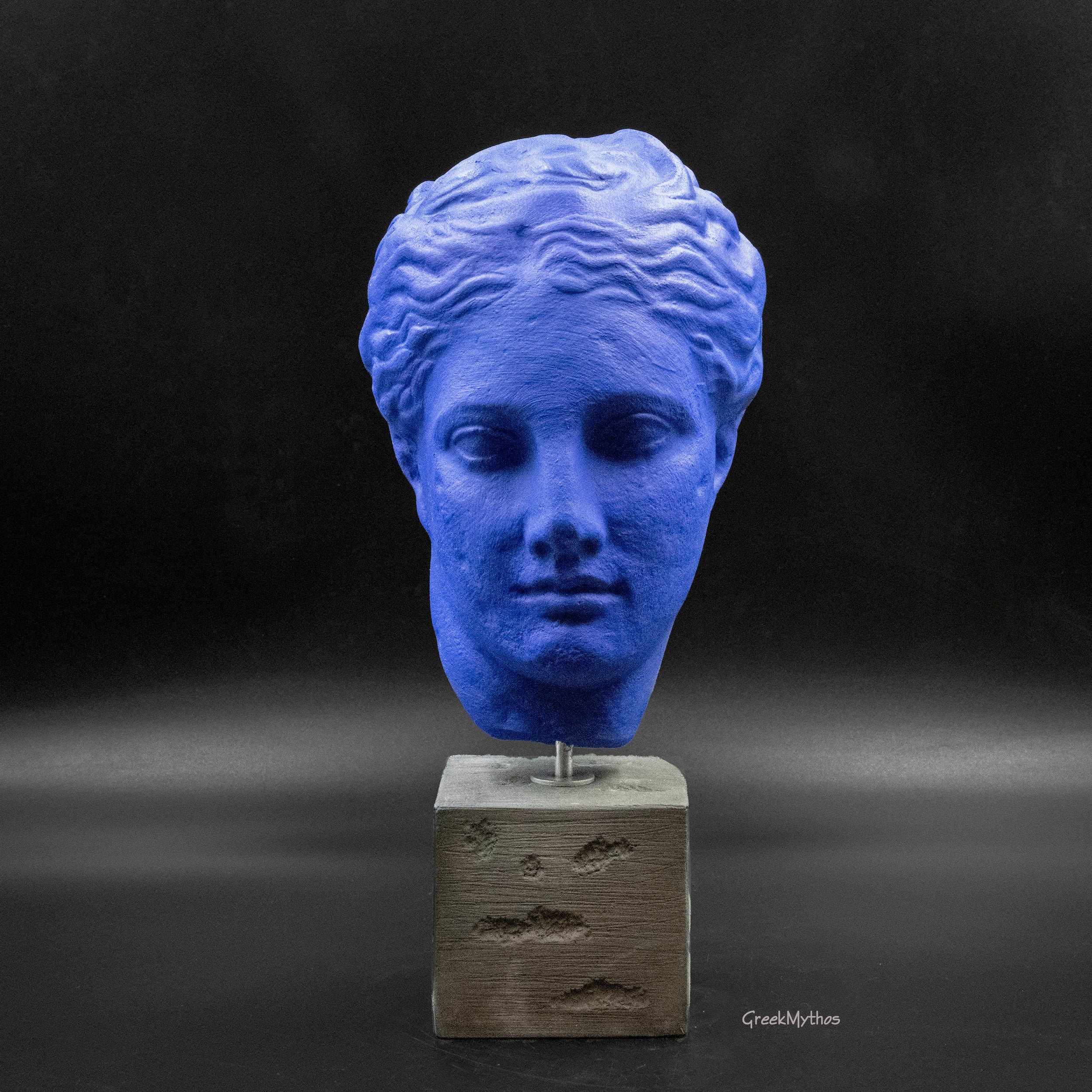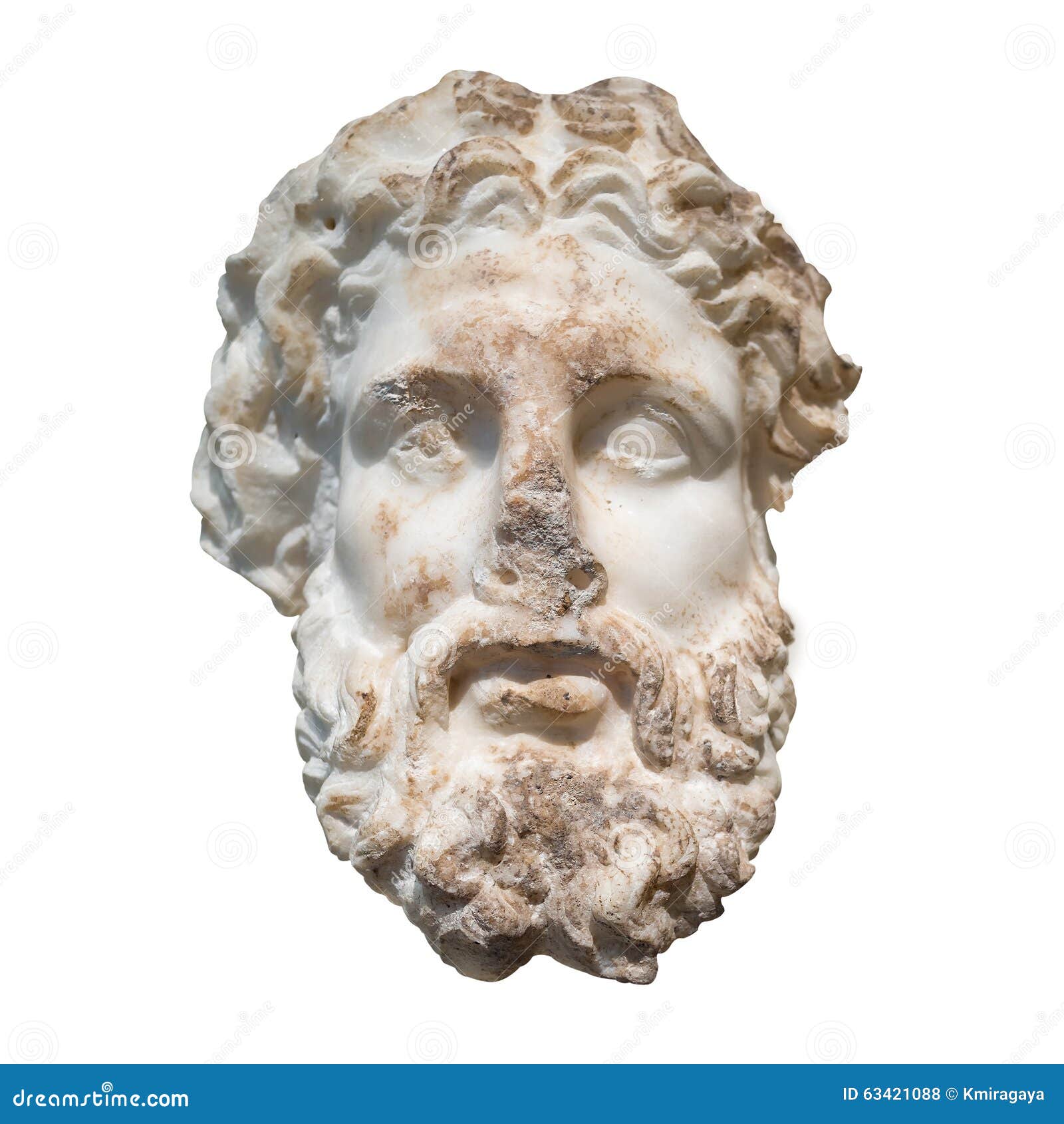Ancient Greek Sculpture, Greek Statues, Ancient Statues, Sculpture Head

reek sticker greek god head statue PNG image with transparent
Apollo Olympian god of music, poetry, art, oracles, archery, plague, medicine, sun, light and knowledge. Ares God of war. Represented the physical, violent and untamed aspect of war. Aristaeus Minor patron god of animal husbandry, bee-keeping, and fruit trees. Son of Apollo. Asclepius God of medicine, health, healing, rejuvenation and physicians.

Marble head, probably of the Ancient Greek god Zeus. News Photo Getty
Athena [b] or Athene, [c] often given the epithet Pallas, [d] is an ancient Greek goddess associated with wisdom, warfare, and handicraft [3] who was later syncretized with the Roman goddess Minerva. [4]

Greek god head wearing laurel wreath statue icon logo design
Hera or Juno Hera - or Juno in Roman religion - is the wife and sister of Zeus, and is queen of the gods. Her symbols are the peacock, the cuckoo and the cow - animals she considered sacred - and her chariot is pulled by peacocks instead of horses.
Greek God Head Wearing Laurel Icon Design Vector Minimal Line Style
Definition: deity Usage: deity, Godhead. HELPS Word-studies 2320 theótēs (a feminine noun derived from 2316 /theós, "God") - the personal God revealed in the Bible who is triune and infinitely relational as demonstrated by the embodiment of the Godhead in the incarnated Christ (used only in Col 2:9).

Marble Head of Young Man, Ancient Greek God Bust Stock Photo Image of
By Wayne Jackson | Christian Courier Since the late second century A.D., controversy has existed concerning the nature of the Godhead. Is God a solitary person—simply manifested in three forms? Or do three separate personalities exist, each of whom possesses the nature of deity? Is the popular doctrine of the Trinity true or false?
즐거운 이베이직구, 이베이 아마존 구매대행, 조이베이 APOLLO Greek Roman God Bust Head Cast
The word "Godhead" is a simple doublet of the less frequently occurring "Godhood." Both forms stand side by side in the Ancren Riwle (about 1225 AD), and both have survived until today, though not in equally common use.
Greek God Head Wearing Laurel Icon Design Vector Minimal Line Style
A Full Grown Warrior. Metis gave birth to Athena after Metis was swallowed. Athena began growing inside Zeus's head. When Haphaestus cut open Zeus's head, and Athena was born, she was not born an infant. Instead, Athena was born a fully grown warrior, dressed in armor and ready for war. This is how Athena became the goddess of war and wisdom.

Bronze head of Hypnos, the Greek god of sleep. Dated 275 BC News Photo
In Greek mythology, the Minotaur ( / ˈmaɪnətɔːr, ˈmɪnətɔːr / MY-nə-tor, MIN-ə-tor, [1] US: / ˈmɪnətɑːr, - oʊ -/ MIN-ə-tar, -oh-; [2] [3] Ancient Greek: Μινώταυρος [miːnɔ̌ːtau̯ros]; in Latin as Minotaurus [miːnoːˈtau̯rʊs]) is a mythical creature portrayed during classical antiquity with the head and tail of a bull and the body of a man [4] (p 34.

Ancient Greek Sculpture, Greek Statues, Ancient Statues, Sculpture Head
The head of a Greek era statue of Dionysus was found in the ancient Greek city of Cyrene, Libya. Credit: gordontour / Flickr CC BY 2.0/ flickr In a stream, an archaeologist working in the ancient Greek city of Cyrene in todays Libya, found the head of the statue of Bacchus, also known as Dionysus in Greek, the god of wine and theater.. Archaeology in ancient Greek city of Cyrene

Roman sculpture, Greek statues, Sculpture
Here, the word Godhead is the translation of the Greek theion, a word used by the Greeks to denote "God" in general, with no reference to a particular deity. Paul, speaking to Greeks, used the term in reference to the only true God. In Romans 1, Paul begins to make the case that all humanity stands guilty before God.
Marble head of a goddess Greek Late Classical The Metropolitan
Godhead (or godhood) refers to the essence or substance ( ousia) of God in Christianity — God the Father, Son, and Holy Spirit. [1] [2] Appearance in English Bibles

Goddess of Good Health Statue, Greek Goddess Hygeia Head, Greek
In Greek Mythology Who Sprang From Whose Head? - Synonym In Greek Mythology Who Sprang From Whose Head? SABINE MCKELLEN CLASS. Athena, Greek goddess of both knowledge and war, had an unconventional birth. Unlike her fellow Olympians, Athena was born fully grown -- and fully armed.

Free Images monument, statue, art, temple, head, carving, hercules
Athena, in Greek religion, the city protectress, goddess of war, handicraft, and practical reason, identified by the Romans with Minerva.She was essentially urban and civilized, the antithesis in many respects of Artemis, goddess of the outdoors.Athena was probably a pre-Hellenic goddess and was later taken over by the Greeks. Yet the Greek economy, unlike that of the Minoans, was largely.
:max_bytes(150000):strip_icc()/98953030-56aac7995f9b58b7d008f52d.jpg)
Profile of the Greek God Zeus
Birth of Athena. Zeus came to lust after Metis, and chased her in his direct way. Metis tried to escape, going so far as to change her form many times; she changed into various creatures such as hawks, fish, and serpents. However, Zeus was both determined and equally proficient at changing form. He continued his pursuit until she relented.

Image result for zeus statue head Arte grega, Escultura grega
Athena was the Goddess of War, the female counterpart of Ares. She was the daughter of Zeus; no mother bore her. She sprang from Zeus's head, full-grown and clothed in armor. She was Zeus's favorite child. According to Homer's account in the Iliad, Athena was a fierce and ruthless warrior.

Marble Head Of The Greek God Zeus Isolated On White Stock Photo Image
Zeus. Zeus is the Greek god of the skies. His brothers are Poseidon and Hades. Poseidon is one of the Twelve Olympians, while Hades is not. Zeus had three sisters, Hestia, Demeter, and Hera. Zeus is considered the king of all the gods. 2. Poseidon. Poseidon is the Greek god of the seas.